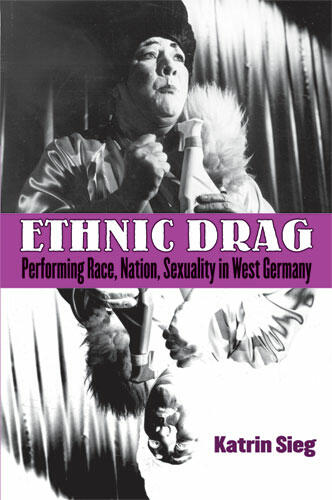Ethnic Drag
Performing Race, Nation, Sexuality in West Germany
An exploration of the West German attempt to repress and refashion concepts of "race" after the Holocaust
Description
The Holocaust is considered a singularly atrocious event in human history, and many people have studied its causes. Yet few questions have been asked about the ways in which West Germans have "forgotten," unlearned, or reconstructed the racial beliefs at the core of the Nazi state in order to build a democratic society. This study looks at ethnic drag (Ethnomaskerade) as one particular kind of performance that reveals how postwar Germans lived, disavowed, and contested "Germanness" in its complex racial, national, and sexual dimensions.
Using engaging case studies, Ethnic Drag traces the classical and travestied traditions of Jewish impersonation from the eighteenth century onward to construct a pre-history of postwar ethnic drag. It examines how, shortly after World War II, mass culture and popular practices facilitated the repression and refashioning of Nazi racial precepts. During a time when American occupation authorities insisted on remembrance and redress for the Holocaust, the Wild West emerged as a displaced theater of the racial imagination, where the roles of victim, avenger, and perpetrator of genocide were reassigned.
Ethnic Drag is an accessible and sophisticated, critical and entertaining book that examines the phenomenon of cultural masquerade in order to examine racial feeling, thought, and behavior in postwar German culture. Contributing to considerations of drag in postcolonial, feminist, and queer scholarships, this book will be of interest to people in German studies, theater performance, ethnic studies, and women's/queer studies.
Katrin Sieg is Associate Professor, Department of German and Center for German and European Studies, Georgetown University.
Katrin Sieg is Associate Professor of German with the BMW Center for German and European Studies at Georgetown University. A recipient of the prestigious Humboldt Foundation Fellowship, her research interests include feminist and queer theory, theater and performance studies, and twentieth-century German culture. Sieg is also the author of Exiles, Eccentrics, Activists: Women in Contemporary German Theater.

